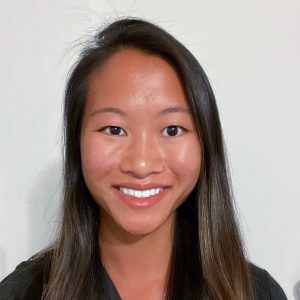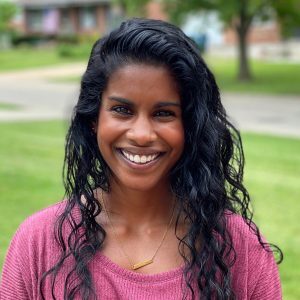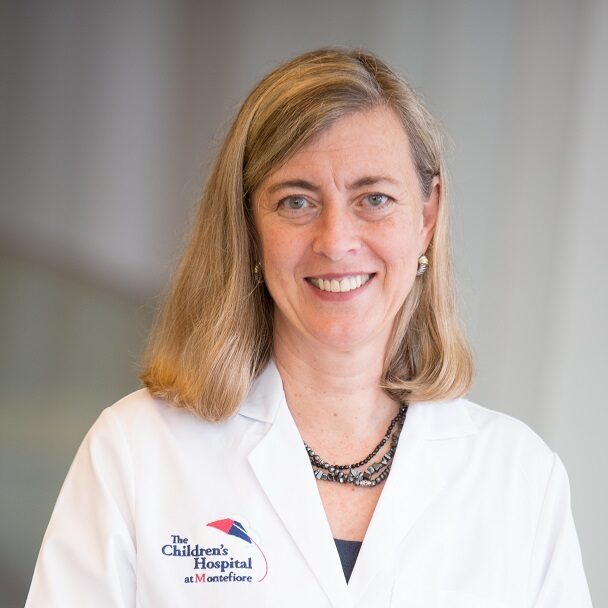Family History “Unknown”: Understanding Adopted Individuals’ Needs in the Healthcare Environment
Adoption Advocate No. 167 - For adopted individuals to be empowered to advocate for their healthcare needs, medical providers must know how to interact in an adoption identity affirming manner and create an environment where patients feel safe discussing their biological history. To accomplish this, adoption professionals and parents should partner with both adopted individuals and medical providers to find ways to thoughtfully navigate adopted patients’ healthcare needs. This issue of the Adoption Advocate explains how to begin that process.
Introduction
While numerous health organizations, including the Centers for Disease Control, emphasize the importance of family history in assessing patients’ health risk, resources on how medical professionals should respond to the unique challenges of patients who have incomplete or missing family histories are more limited.[1][2][3] According to the 2010 US Census Data, approximately 2% of the 34.7 million households with children under 18 contained only adopted children and an additional 2% contained both adopted and biological children.[4]
Additionally, there has been a recent movement for medical professionals to better understand the impact of social factors on their patients’ health.[5][6][7] Questions about housing, education, income, and sexual and gender identity are being integrated into the routine medical exam. However, medical providers do not routinely discuss adoption-related information while taking a patient’s history nor do they inquire about the impact of an adopted person’s identity on their health. Thus, adopted people must often initiate and advocate for themselves about any unique, health-related concern in order to receive the quality of care they need from their medical providers.
While some adopted individuals navigate this hurdle with ease, others struggle, leading them to feel misunderstood or overlooked in the healthcare setting. For adopted individuals to be empowered to advocate for their healthcare needs, medical providers must know how to interact in an adoption identity affirming manner and create an environment where patients feel safe discussing their biological history. To accomplish this, adoption professionals and parents should partner with both adopted individuals and medical providers to find ways to thoughtfully navigate adopted patients’ healthcare needs.
Medical providers should be prepared to consider how adoption may impact their patients. To create environments that feel safe and inclusive for adopted individuals, medical providers should ask further questions about social and family histories in a way that feels inviting and non-intrusive. Medical providers should also consider that many adopted individuals may not feel comfortable talking about their adoption.
Additionally, many adopted individuals, whether adopted domestically or internationally, may have partial access or complete lack of access to information about their biological family medical history and may not know how to initiate these conversations. Adopted individuals need their medical providers to be willing to engage in conversations about adoption and family medical history in an informed manner that promotes safety and trust.
When medical providers understand the implications of adoption on their adopted patients and are prepared to navigate adoption conversations in the exam room, adopted patients feel more comfortable sharing their thoughts and feelings with their provider.
Like most children, I remember going to the doctor as a child with my siblings. I remember the excitement of getting to pick out a sticker at the end of each visit. However, I was never able to articulate that I needed a pediatrician who was willing to engage with my adoption story instead of simply ignoring it. I remember being curious about my genetics, when I’d start my period, or how tall I’d be, but I was always unsure and afraid to ask for fear of how it would be perceived. Or worse, I feared my pediatrician would answer my questions with “I don’t know”— words I had heard too frequently when I told my adoption story. As you may expect for a child, it was hard to express my fear and curiosity to my doctor. I can’t help but wonder how much more affirmed in my identity I would have been if my pediatrician knew how to start those conversations. It would have been so beneficial to me if my pediatrician acknowledged my adoption and shared that she is a safe person to discuss my health or medical concerns with, especially when I did not feel comfortable sharing them with my parents.
For me, it could have been as simple as my pediatrician telling me about common height measurements for women in India or giving me or my parents resources on skin or hair care for people with brown skin. I would have loved to know what was “normal” for me or what health conditions I’m predisposed to based on my Indian ancestry that I should be aware of. I would have loved her to know I needed this without having to ask. — RG
Conversations regarding adoption should not stop after patients age out of the pediatrician’s office. Like child adoptees, many adult adoptees struggle with a sense of uncertainty regarding their health risks. Family medical history also becomes more pertinent as adopted individuals age and begin to consider the health risks of their potential offspring.[8]
It is often unconventional for medical professionals to ask about early childhood experiences in adult patients. However, adoption is a lifelong journey, and providers should be prepared to be open and transparent about adoption-related concerns regardless of the patient’s age.
Studies have shown that adopted individuals are more likely than the general population to experience four or more adverse childhood experiences (ACEs).[9] Multiple ACEs increase risk for future mental health problems and chronic diseases such as cancer, diabetes, heart disease, and suicide. ACEs can also have a tremendous negative impact on future education, employment, and earning potential – these are social determinants of health that are incorporated into current medical education.[10][11][12] Yet, foster care and adoption are often omitted from the list of social factors to address during patient interviews. The downstream effect of early childhood experiences could linger well into adulthood and should be addressed by all providers.
A traditional medical school curriculum does not typically include education about caring for adopted individuals. Several medical schools, including the University of Massachusetts Medical School and the Medical College of Wisconsin, offer electives related to understanding the unique needs of the adopted population.[15][16] Medical students and practicing medical providers need to understand basic information about adoption and foster care, examine personal attitudes and beliefs, and appreciate the health considerations relevant to this patient population. Given the impact of an adoptee’s experience on their future health, medical providers at all levels, working with all ages, should be trained to provide adoption-competent care.
As an adoptee and medical student, I’ve seen both as a patient and provider how the medical field is inadequately equipped to understand the complexities of adoption. In my first year of medical school, we had a session dedicated to eliciting a family history. It was a basic structure starting with asking patients “Are there any major illnesses or diagnoses that run in your family?”, then collecting focused questions about genetic red flags. During this session, I couldn’t help but think about all the times I reflexively answered this question with “I’m adopted” and the conversation quickly moved on with no follow-up. It always seemed strange to me that my providers never wanted to learn more about my adoption story. Why weren’t my providers curious about how old I was when I was adopted or where I was adopted from or if there are any stressors related to my adoption that I wanted to discuss? After all, they asked about my friends, relationships, job, and school. Why did they not want to know more about my adoption which was a core aspect of my life and identity?
I remember asking my professors during this session how to take a family history from a patient who is adopted. When I was working with a geriatrician I asked, “Why do we not ask about early childhood experiences during exams if patients with dementia or cognitive decline usually regress to earlier life memories?” In my genetics class I wanted to know if there were any genetic screenings offered to adopted individuals with limited access to their family medical history. Unfortunately, all of my inquiries have compiled more questions than answers, and ultimately end with “I don’t know.”
Now that I am in my clinical clerkship training, the answers to these questions seem more urgent as I am given more autonomy to interview patients and provide care. I recently went to interview the mother of a newborn when I was on my nursery rotation. When I asked her about her family history, she told me that both she and the baby’s father were adopted with no known family medical history. My eyes lit up and my mind starting racing with questions I had compiled over my three years of training. However, which questions were appropriate to ask? Was she concerned about the unknown genetic risks of her child, similar to how I am anxious about the health of my future children? How could I make her feel comfortable enough to share her adoption story and any related concerns? I felt awkward and uncertain of how to best handle the situation, but above all else I was frustrated that my medical education hadn’t prepared me to talk about adoption in a friendly, straightforward way. If a patient’s environment, sense of identity, and support system have been proven to influence their health, medical education should adequately prepare medical trainees to discuss a patient’s adoption story as much as any other socio-environmental concern. — JS
When providing medical care and health-related services to adopted individuals, it is important to acknowledge that these individuals may have a range of emotions and feelings about not knowing their family medical history. These feelings and emotions will be unique to each individual patient as every adoption story is different. Some adopted individuals may experience anxiety or fear of unknown medical conditions they could be predisposed to, or they may feel embarrassed for having to explain they have an unknown family history to their doctor.
Other adopted individuals may have deeply rooted feelings of shame and guilt which can resurface when medical providers ask probing questions or make generalized assumptions that can come across as insensitive and thoughtless. Medical providers should navigate topics of family medical history sensitively with their adopted patients, acknowledging that this topic could be potentially triggering and difficult to consider for these individuals.
I remember the first time I went to the doctor without a parent, and I was responsible for filling out my own medical paperwork. I specifically remember looking at the two-page family history section and drawing a line straight down the “no” column without even reading it. I remember returning the clipboard to the receptionist, and she said, “You’re done already?” I gave a half smile and looked away—why did I feel guilt filling out a medical history form? Thinking back now, I wish the form had an additional column next to the yes and no that said, “don’t know.” I think I felt some level of guilt for not knowing something that perhaps I felt obligated to know. It also made me feel isolated and disconnected. It’s hard having to acknowledge that so much of my history is unknown. For many international adoption stories like mine, where babies are left in orphanages, there is simply no way to know the child’s medical or biological family history. When I came to the United States in 1995, I came with a first name and not much else, and I’ve had to grieve not knowing. — RG
Not only will adopted individuals experience not knowing their family medical history differently, they will also experience their adoption identity differently. Adoption professionals should recognize that adopted individuals will experience their identities in different ways at different times in their lives. There cannot be a one size fits all model or approach to interacting with adopted individuals in healthcare settings. Adoption identities are distinctive to the individual and may change throughout their life.
When I met with a new doctor, I had to explain that I was adopted and I didn’t know anything about my genetics or family history, so the preliminary paperwork was utterly meaningless to me. There was a part of me that wished I didn’t have explain it. So much of my adoption story is always explaining things. The experience was a wakeup call that I had no idea what chronic diseases or conditions I was predisposed to, like breast cancer or heart disease—and that could be potentially dangerous, so I should start getting annual blood work done. There must be better ways to navigate delicate situations like these for patients like me who don’t know their medical family history. — RG
Adoption professionals and parents can encourage and support adopted individuals to advocate for themselves and share, if they choose to, their adoption history with their healthcare providers. While some adopted individuals will need support in learning to advocate for themselves in healthcare settings, others will not. Some adopted individuals feel comfortable engaging in their adoption story with their medical provider, while others may be more reserved or not feel it necessary to discuss. Adoption professionals should consider how to empower adopted individuals to vocalize their concerns about their health when they do not know their family history, especially for adopted individuals who do not want to share this with their medical provider.
Conclusions
Elevating adopted individuals’ voices and empowering them to express their health concerns to their medical provider requires reform in how medical professionals approach their adopted patients. Accelerating and disseminating this change will involve revising medical training to include adoption-competent care. Medical providers should understand how frequently adoption and foster care play a role in their patients’ lives and find ways to tactfully navigate conversations when family medical history is unknown or limited. Only when medical providers are adoption-informed and able to fully recognize the implications of adoption will they be able to fully meet the healthcare needs of their adopted patients.
Guidance for Medical Professionals
- Establishing trust and acknowledging vulnerability is essential to creating a space where adopted individuals feel comfortable navigating the challenges of discussing their adoption and being open to sharing their concerns with their medical provider. Acknowledging adoption is better than ignoring it, but do not assume all adopted individuals want to discuss their adoption history. When in doubt, it is always better to ask. Medical providers might say, “I understand you’re adopted; I want to acknowledge and affirm that it can be hard to discuss issues related to your adoption and I’m here for you.” They should follow up by asking what the adopted person needs from them: “How can I support you? What resources or information can I provide? What are your concerns?”
- When interacting with an individual who is adopted, remember that they are a person first, and their adoption identity comes second. Since identity as an adopted person can fluctuate over time as one evolves as an adult, meeting them where they are, at every encounter, is critical to supporting their well-being. Do not assume that all adopted individuals will need the same type of care at every encounter, as adoption influences one’s life throughout adulthood.
- Some adopted individuals will need their medical provider to initiate conversations about family medical history while others will openly share. It can be beneficial for medical providers to get curious and ask questions using adoption-sensitive language.
- Making family history forms inclusive for adopted individuals can provide a platform where adopted patients feel seen and, in return, may feel more comfortable sharing with their medical provider. Offering a column marked “unknown” or “not available” in the family history section of an intake form and providing a checkbox that states “adopted” could be a pragmatic way to allow medical providers to better understand their adopted patient without the patient having to initiate those conversations.
- When caring for adopted adults, medical providers should consider the impact of early childhood experiences, including adoption and foster care. Proper attention to thorough past medical and social histories ensures that adopted individuals receive comprehensive care.
- All medical providers should familiarize themselves with the unique needs of adopted individuals. Adoption professionals should consider working with medical school educators to establish formal medical education curricular guidelines which address adoption-sensitive language and practices related to an adopted person’s health.
References
[1] Centers for Disease Control and Prevention. (2022, May 25). Family Health History. Retrieved from: https://www.cdc.gov/genomics/famhistory/index.htm
[2] American Adoptions. (2020, January 23). How to Talk to Your Pediatrician About Adoption. Retrieved from: https://www.americanadoptions.com/blog/how-to-talk-to-your-pediatrician-about-adoption/.
[3] Rich E.C., Burke W., Heaton C.J., Haga, S., Pinsky, L., Short, M.P., Acheson, L.. (2004). Reconsidering the family history in primary care [published correction appears in J Gen Intern Med. 2005 Mar;20(3):315]. J Gen Intern Med, 19(3), 273-280. DOI:10.1111/j.1525-1497.2004.30401.x
[4] U.S. Census Bureau. (2014). Adopted Children and Stepchildren: 2010 (Report No. P20-572). Retrieved from: https://www.census.gov/library/publications/2014/demo/p20-572.html.
[5] Artiga, S. & Hinton, E. (2018). Beyond health care: The role of Social Determinants in promoting health and health equity. Kaiser Family Foundation. Retrieved from: https://www.kff.org/racial-equity-and-health-policy/issue-brief/beyond-health-care-the-role-of-social-determinants-in-promoting-health-and-health-equity/
[6] World Health Organization, Commission on Social Determinants of Health. (2008). Closing the gap in a generation: health equity through action on the social determinants of health. Commission on Social Determinants of Health Final Report. 1-40.
[7] Chung E. K., Siegel B. S., Garg A., Conroy K., Gross R.S., Long D.A., Lewis G., Osman C.J., Jo Messito M., Wade R., Shonna Yin H., Cox J. & Fierman A.H. (2016). Screening for Social Determinants of Health Among Children and Families Living in Poverty: A Guide for Clinicians. Current Problems in Pediatric and Adolescent Health Care, 46 (5), 135-53. DOI: 10.1016/j.cppeds.2016.02.004.
[8] Child Welfare Information Gateway. (2013). Impact of Adoption on Adopted Persons. Retrieved from: https://www.childwelfare.gov.
[9] Anthony R.E., Paine A.L. & Shelton K.H. (2019). Adverse Childhood Experiences of Children Adopted from Care: The Importance of Adoptive Parental Warmth for Future Child Adjustment. International Journal of Environmental Research and Public Health, 16 (12), p. 1-16. DOI:10.3390/ijerph16122212
[10] Felitti V.J., Anda R.F., Nordenberg D., Williamson D.F., Spitz A.M., Edwards V., Koss M.P. & Marks J.S. (1998). Relationship of childhood abuse and household dysfunction to many of the leading causes of death in adults. The Adverse Childhood Experiences (ACE) Study. American Journal of Preventative Medicine, 14 (4), 245-258. DOI: 10.1016/s0749-3797(98)00017-8. PMID: 9635069
[11] Center for Disease Control and Prevention. (2021). Adverse Childhood Experiences (ACEs). Retrieved from: https://www.cdc.gov/violenceprevention/aces/index.html.
[12] Hughes K, Bellis MA, Hardcastle KA, Sethi D, Butchart A, Mikton C, Jones L, Dunne MP. The effect of multiple adverse childhood experiences on health: a systematic review and meta-analysis. Lancet Public Health. 2017 Aug;2(8):e356-e366. DOI: 10.1016/S2468-2667(17)30118-4. Epub 2017 Jul 31. PMID: 29253477.
[13] Anthony RE, Paine AL, Shelton KH. Adverse Childhood Experiences of Children Adopted from Care: The Importance of Adoptive Parental Warmth for Future Child Adjustment. Int J Environ Res Public Health. 2019;16(12):2212. Published 2019 Jun 22. DOI:10.3390/ijerph16122212
[14] Center for Disease Control and Prevention (2021). Adverse Childhood Experiences (ACEs). Retrieved from: https://www.cdc.gov/violenceprevention/aces/index.html.
[15] Henry, M., Pollack D. & Lazare, A. (2006). Teaching Medical Students About Adoption and Foster Care. Adoption Quarterly, 10 (1), p. 45-61, DOI: 10.1300/J145v10n01_03
[16] Wilson, S.L. (2021, October). Medical Education: Student experiences with a 9-hour elective exploring adoption & foster care within medical practice. Poster presented (virtually) at the American Academy of Pediatrics National Conference.
Originally published in 2022 by National Council For Adoption. Reprinting or republishing without express written permission is prohibited.









